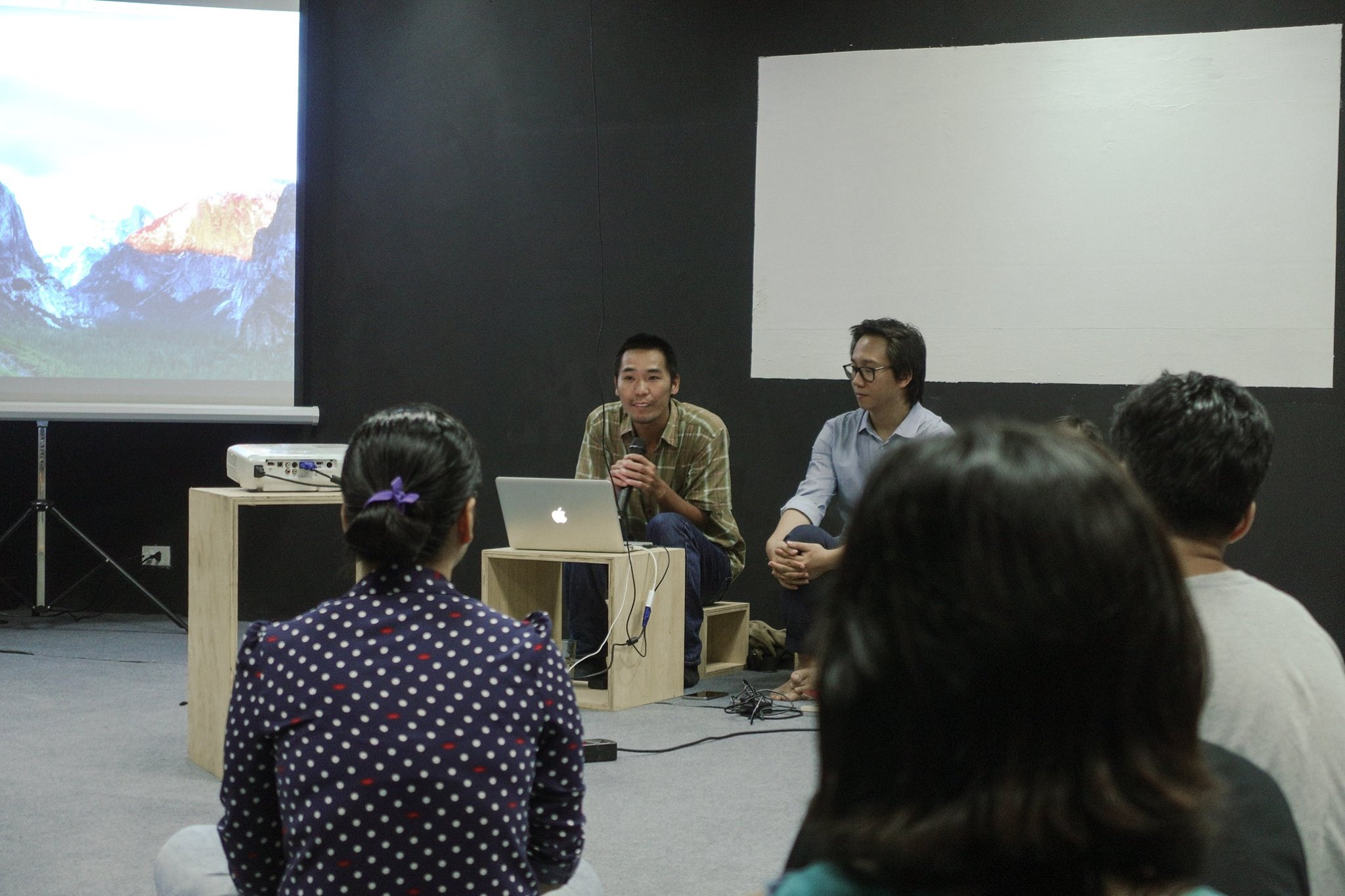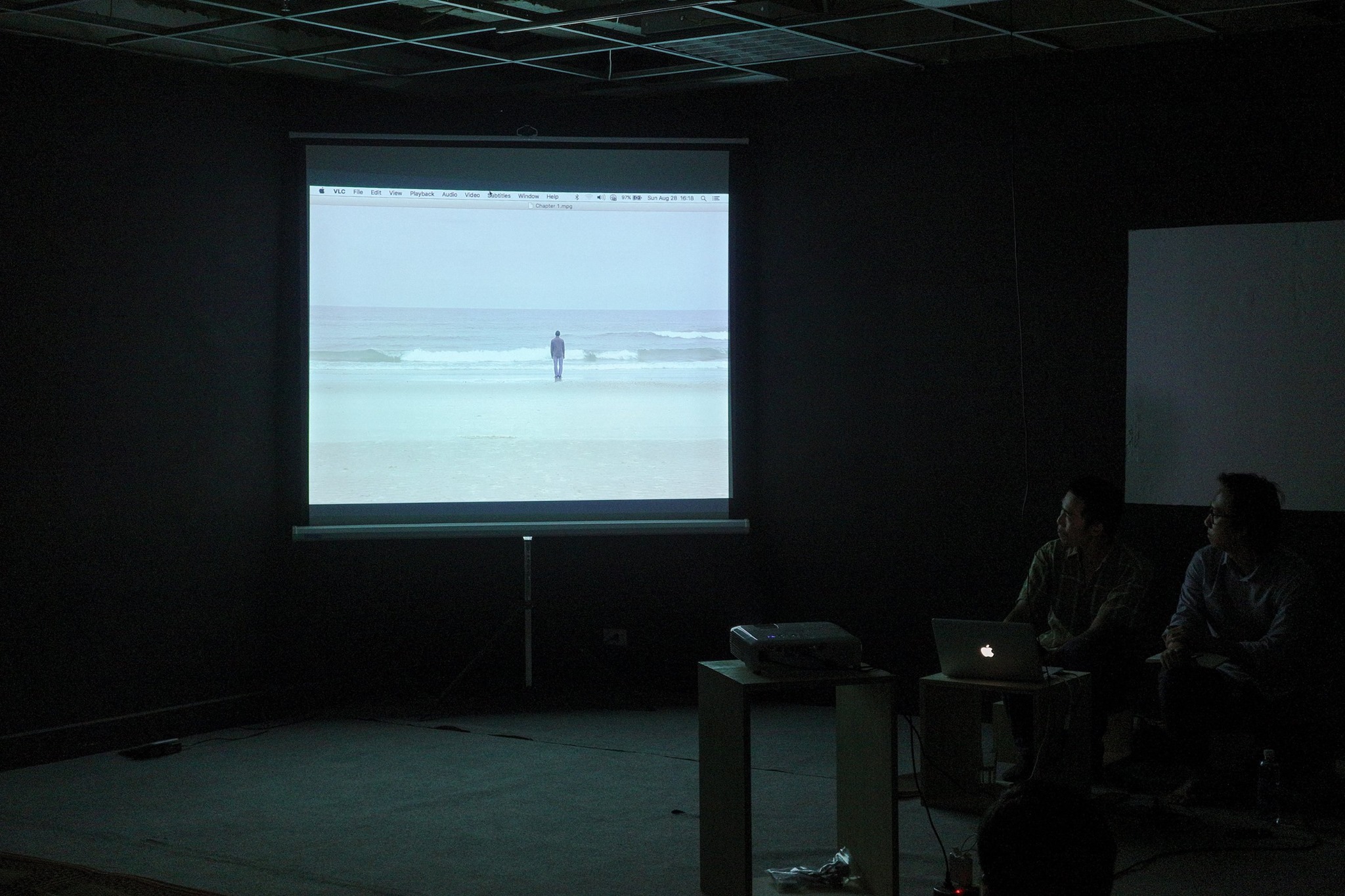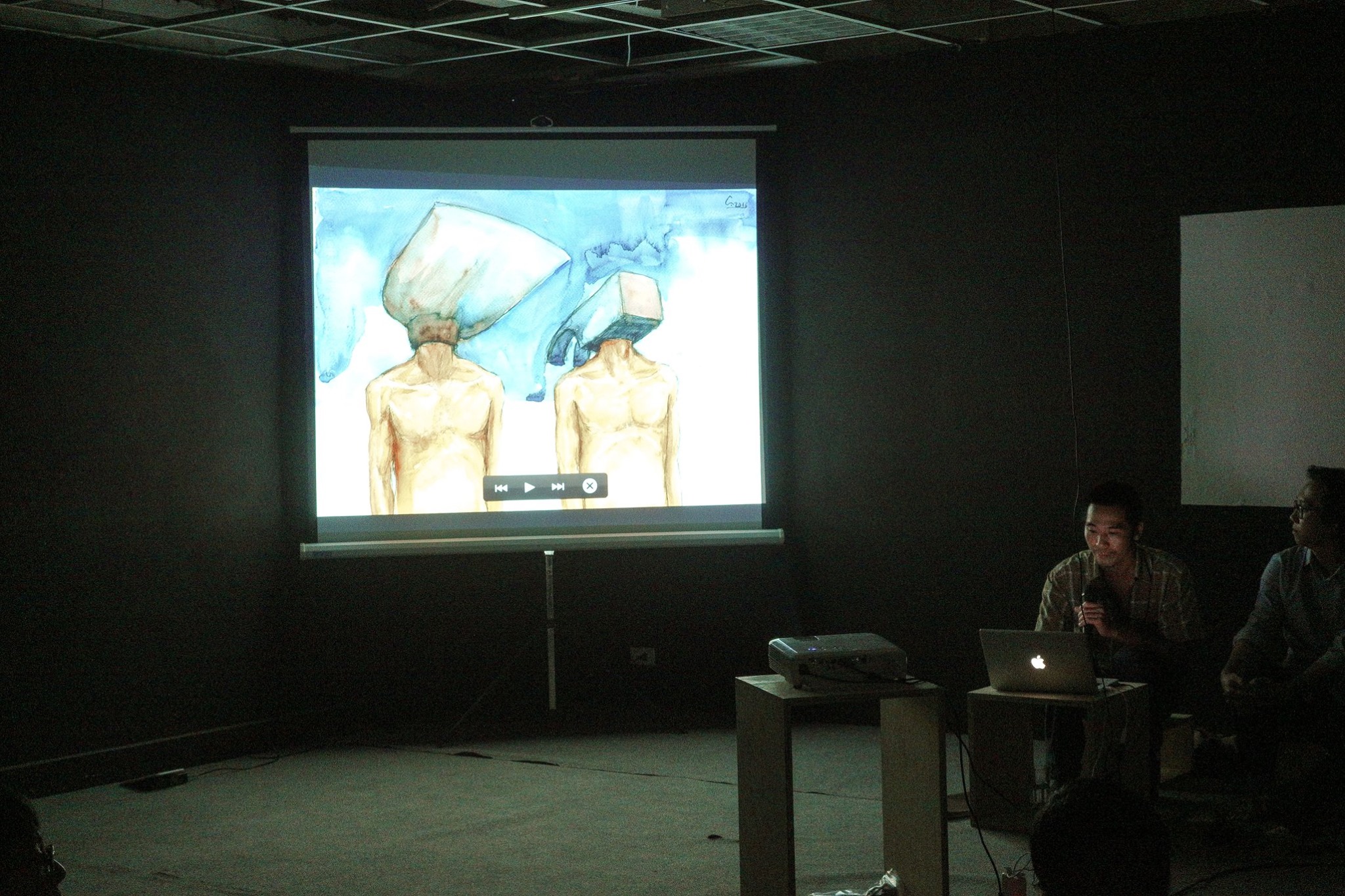Nha San Collective - SWFP3 - Knowledge Exchange - Shifts in Vietnamese Conception of Chinese culture
About
KNOWLEDGE EXCHANGE
A series of seminars within Skylines with flying people 3
Nguyen Ban Ga - “Imagining Territories”
Sino-Nom researcher Trần Quang Đức – “Shifts in Vietnamese Conception of Chinese culture”
Sunday, 28.08.2016, 16:00 – 18:30
Nha San Collective, 15th floor, Hanoi Creative City, 1 Luong Yen, Hanoi
Skylines with flying people 3 expands the artistic territory to the field of social sciences and humanities. Organized within the scope of SWFP 3, Knowledge exchange seminars aim to increase awareness of a contemporary Vietnam and to promote dialogues and collaborations amongst different fields and communities, so as to generate new knowledge as well as diverse and creative initiatives.
Each seminar follows subject matters that are relevant to the 12 sub-projects within Skylines with flying people 3, with discussions conducted by an artist and an expert in another discipline such as history, archeology, sociology, etc. Knowledge exchange seminars will be held from March 2016 to December 2016 at different venues in Hanoi.
The second seminar will be the presentation and discussion between Sino-Nom researcher Trang Quang Duc and Nguyen Ban Ga, participating artist of Skylines with flying people 3.
The seminar will be held only in Vietnamese. Please register for English interpretation at the entrance if needed!
Moderator: Lê Thuận Uyên
* Nguyễn Ban Ga - “Imagining Territories”
“Imagining Territories” is Ban Ga’s contemplation of his obscure fear for a potential sovereignty infringement. Traveling to Quảng Yên province, Việt Nam’s northern borders and the Lý Sơn islands, locations associated with Vietnam's proud national defence tradition, the project is a journey of reflection during which the artist investigates various aspects of political frameworks that have shaped each and every Vietnamese.
* Sino-Nom researcher Trần Quang Đức – “Shifts in Vietnamese Conception of Chinese culture”
The period during the early twentieth century could be considered a turning point in the history of Vietnam. As the country transitioned from feudal monarchy to a semi-feudal and semi-colonial framework, a series of complex transformations also emerged, resulting in numerous disparities between the modern Vietnamese and their ancestors. Ideologies, perceptions, ways of living, views on cultural influences from China etc. were put into question and called for re-examination.
In the past, Vietnamese monarchs used to consider the Chinese culture an advanced and intellectual one, and deliberately absorbed it. Some even identified themselves as Huaxia or Han people, while deeming the dynasties of Mongolian Yuan and Manchus Qing barbarians. On this basis, multiple local cultural characteristics - even though distinctively different - shared several similarities with those of China. The modern Vietnamese - having experienced major cultural and political paradigm shifts and with an antipathy toward the expansion of the communist China - have a very different outlook on China, especially when the cultural domain is concerned. Such state of affairs constitutes a complex obsession known as Sinomania.
--
Nguyễn Ban Ga, studied at the Việt Nam University of Fine Arts and is now living and working in Hà Nội. Ban Ga is one of the founders of Hanoi Link - a collective of young video artists, and an active member of Nhà Sàn Collective. Ban Ga also works at Hà Nội DOCLAB - Centre of Documentary and Experimental film located at the Goethe Institut, where he teaches short courses on filmmaking. Although video art is his primary medium, Ban Ga also works with painting and performance art to express his perspective on issues that contemporary Vietnamese society is facing.
Trần Quang Đức, b. 1985, is an independent Sino-Nom researcher. Following a period of study at the Vietnam National University, he won a scholarship to further his education at the Beijing University where he graduated in 2009. Quang Đức has worked at Nha Nam Culture and Media company and the Institute of Literature. He is active in the field of education, and is currently researching on the topics of Vietnamese ancient and medieval culture and history. His debut studies, A Thousand Years of Attires, received the “New Findings” prize at the Good Book Award in 2014. His translation of the Basic Annals section from Sima Qian's Shǐjì (Records of the Grand Historian) was published in late 2014.


